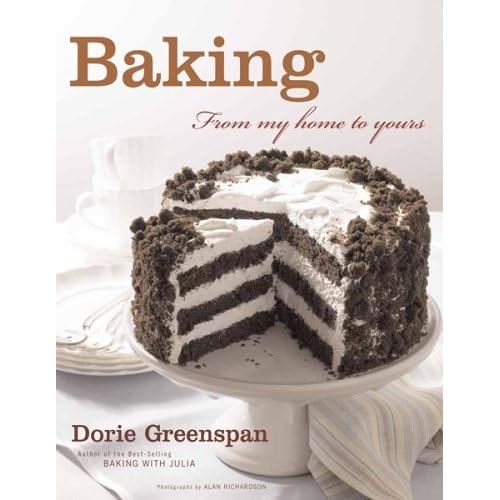
I've intended to join The Sunday Salon since the moment I heard of it--
an informal, weekly, mini read-a-thon, an excuse to put aside one's earthly responsibilities and fall into a good book sounds perfect to me--but I told myself I'd postpone participation until after we'd finished the bedroom renovations. But the renovations are dragging on--L. needs to buy more wood to complete the closet and dressing area and then let it acclimate before we can sand, stain, wax, etc.--and I can't deal with the mountain peak of old clothes currently on the bedroom floor for very long without being overcome with allergies, so here I am, avoiding sorting (gah, I hate clothes), tissue box at hand, at least for awhile.
I've finished only three books so far this year and have yet to write about any of them despite the fact that one of them will definitely be on my best-of-year list come next December. Reviews will follow this week, I hope. This weekend I've been reading Richard Dawkins'
The God Delusion, which, in its way, is a fit companion for my other book-in-progress, Olive Schreiner's
The Story of an African Farm, which concerns itself with a character's loss of faith. I finished the most science-heavy chapter of the Dawkins this morning and expect the rest of the book to be a little easier on the brain.
One of my reading resolutions was to read a short story per week as part of the
Short Story Reading Challenge. I suppose I should amend that resolution to say that I will read at least 52 stories, but in fits and starts, since I have yet to read a single story this year. I'll be spending the rest of my reading time today on an assortment of stories and will update this post as I complete them.
~~~
Since
Kate read and loved Ali Smith's
The Whole Story and other stories last year, it seemed appropriate that my first story for the challenge should come from this collection. How apropos then to discover these lines of Brazilian writer Clarice Lispector at the front of Smith's book as a tie-in to the last chapter read in Dawkins:
Everything in the world began with a yes. One molecule said yes to another molecule and life was born. But before prehistory there was the prehistory of prehistory and there was the never and there was the yes. The first story in the collection, "the universal story," is a story of beginnings, a story of false beginnings to stories, of a writer feeling her way into the proper beginning and perspective for telling a story. The heart of the story: an artist who builds full-sized boats out of flowers, clocks, leaves, etc., remembers the final lines of Fitzgerald--
So we beat on, boats against the current--and sends her brother to buy all the copies of
The Great Gatsby that he can find so that she can build a boat out of books. Along the way, we learn the history of one particular copy of Gatsby, the fly who lands upon the cover of Gatsby in a second-hand bookshop, and the grim economics experienced by the bookshop's owner since the bypass around her village was built.
Excellent!
~~
Our mothers and fathers were werewolves. They lived an outsider's existence in caves at the edge of the forest, threatened by frost and pitchforks. They had been ostracized by the local farmers for eating their silled fruit pies and terrorizing the heifers. They had ostracized the local wolves by having sometimes-thumbs, and regrets, and human children. (Their condition skips a generation.) Our pack grew up in a green purgatory. We couldn't keep up with the purebred wolves, but we never stopped crawling. We spoke a slab-tongued pidgin in the cave, inflected with frequent howls. Our parents wanted something better for us; they wanted us to get braces, use towels, be fully bilingual. When the nuns showed up, our parents couldn't refuse their offer. The nuns, they said, would make us naturalized citizens of human society. We would go to St. Lucy's to study a better culture. We didn't know at the time that our parents were sending us away for good. Neither did they.
--Karen Russell,
St. Lucy's Home for Girls Raised by Wolves~~
When they go down the stairs, there is no sign of the Specialist's hat. They brush their teeth, climb into the ship-bed, and pull the covers up to their necks. The babysitter sits between their feet. When you're Dead," Samantha says, "do you still get tired and have to go to sleep? Do you have dreams?"
"When you're Dead," the babysitter says, "everything's a lot easier. You don't have to do anything that you don't want to. You don't have to have a name, you don't have to remember. You don't even have to breathe."
She shows them exactly what she means.
--Kelly Link, "The Specialist's Hat," in
Feeling Very Strange








